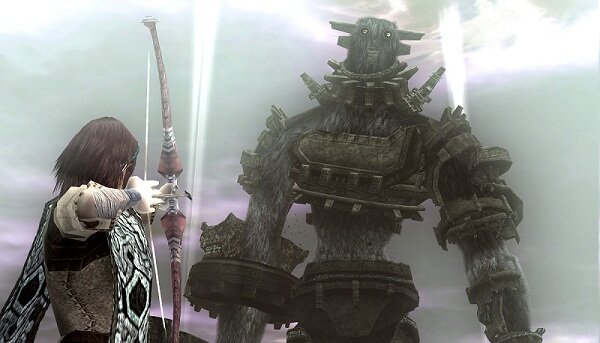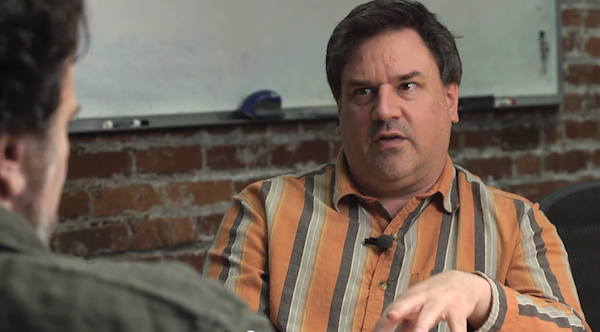
In the past few decades we were able to see video games’ production quality surpass many other forms of entertainment such as TV and film. Development processes can range from the non-budget and darkest indie basements to the most top of the line publisher behemoths, though this isn’t necessarily reflected in their quality. In the end the creative industry of gaming is an industry like any other, games tend to be created according to trends with their purpose to make a turnover surpassing the artistic integrity. I believe many developers are getting to comfortable with what they believe “works well enough”.
If you’d have to say what the current type of game seems to be dominating the market, many would probably go with First Person Shooters. What’s the problem with that, right? You don’t have to put that much effort in the actual character model’s animation because you’ll only see snippets from one specific angle and if you go all Gordon Freeman you can add more depth by not doing any voice-acting for the protagonist either, it worked in Half-Life, so why not? What I’m getting at is that developers are seeing what the public is familiar with and enjoys and therefore doesn’t see it fit to try something different because an average middle ground is better than the rock bottom they might hit for taking a risk.
Titles like a third person Call of Duty spin off or a steam-punk batman get lost in the games industries’ selective process. These gems will never see the light of day, even though they had already taken care of a large chunk of the production. It isn’t the money that these titles demanded which stopped them from being successful, but simply a market over saturated with sequels and familiar properties which make it nearly impossible to get recognised.
Ubisoft’s Assassin’s Creed is one of these franchises that used financial clout and marketing to overcome gameplay faults and bolster sales figures. The first game didn’t get the best reviews due to its repetitive gameplay and completely unexpected story but was praised for its fresh feel and its gorgeous graphics. The series has now become a full-fledged franchise with merchandise, plans for a movie and an upcoming release which is supposedly one of Ubisoft’s biggest to date.
So you have to spend money, to make money? For this we have to look into the most creative frontier in gaming, the indie developers. Now there are many examples I could chose from but, and it is quite unfair to chose this specific one, but Mojang have pulled off one of the most remarkable games in recent years with their release of Minecraft. With simple graphics and addictive gameplay, this title had built up an enormous community before the game was even released. The user base has expanded to a jaw dropping 23 million registered members, of which 5 million have bought the game. Next to MineCon, a convention dedicated to Minecraft, and landing deal with Lego, Mojang is doing pretty well for a company founded in 2009.
Well even if new IPs are to risky for being to unfamiliar, why not just see what the fans want? A new Earthbound or Shenmue? Gosh, but fans do have high expectations, so how do publishers supply the demand without losing too much money? Simple, instead of giving them more of what they want, the fans get the same. This doesn’t mean I don’t see the value in some HD remakes, they are a great for many who may have missed out on classic last generation titles but we’re starting to see this industry laziness again where publishers notice that they can simply take a finished product and polish it up for the current market, this doesn’t always work though.
For instance if we look at the re-release of the Ninja Turtles arcade game, it sold because fans remembered it for what it was, but by simply putting out the same title, the gameplay showed its wrinkles. The obvious solution then is to look at what sells and deliver on that premise and as mentioned earlier, right now it’s pretty much First Person Shooters. So combining an experience players trust without trying something new helps us to bring together ideas from the past with contemporary gamers. As a result of this thought process we see “new” FPSs like Xcom or Syndicate come to being.
How comes many classic genres aren’t popular any more? In a discussion with Tim Schafer, Ron Gilbert, famous for his work at Lucasfilm Games, claimed that it isn’t that games such as the point and click adventure have died out. “I think Adventure games are as popular as they were back when Monkey Island came out. The problem is that all these other games have become a lot more popular,” he goes on to explain, “When Monkey Island came out selling 200,000 copies of an Adventure game was [huge]. I think you’d still sell 100,000 to 200,000 copies of an Adventure game today, the problem is Call of Duty sells 6 and 7 million copies. So, I think they’re still very popular it’s just that they haven’t kept pace with other games out there.”
I find it important that developers remind themselves that it is up to them to stray from the mainstream path and explore the variety, video games have to offer. I think of games like Mutant League Hockey, Mario Kart, NBA Jam or Twisted Metal that have me playing Sports and Driving games which I’d otherwise never touch. Making difficulty cool again with ideas such as the upcoming Bioshock: Infinite’s 1999 mode or Battle Kid, a NES release from 2010.
As with any creative industry in our modern day and age it is important not to compromise artistic integrity for big budget cash-ins. Like with anything it boils down to quality, not quantity, we must embrace originality and abolish the development lethargy.


 March 6th, 2012
March 6th, 2012  Kamran Draeger
Kamran Draeger




 Posted in
Posted in 